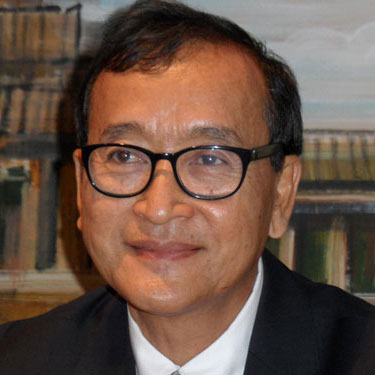The call for a popular uprising against the military junta in Myanmar made by the National Unity Government (NUG) recently formed by the democratic forces of Myanmar, and the civil war which such a call entails, constitute a major event which will have powerful international repercussions.
After the military coup of Feb. 1 which put a brutal end to a chaotic democratic transition, the NUG represents popular legitimacy and deserves international recognition, since the party of Aung San Suu Kyi, the National League for Democracy, won two elections in November 2015 and November 2020 with overwhelming majorities.
The situation in Myanmar recalls that in Cambodia where the strongman of the country Hun Sen has anticipated the tactics of Myanmar’s junta in many respects:
– Arrest of the leader of the opposition Kem Sokha on Sept. 3, 2017.
– Dissolution of the only parliamentary opposition party, the Cambodia National Rescue Party (CNRP) on Nov. 16, 2017.
– Cancellation or confiscation of all the seats which the CNRP won through universal suffrage nationally (July 2013) and at local level (June 2017).
– Organisation of fake elections without the CNRP in July 2018 allowing Hun Sen’s party, the Cambodian People’s Party (CPP), to take 100% of the seats in the national assembly, so returning Cambodia to a single party system, as before the signature of the Paris Peace Accords in 1991.
In Cambodia as in Myanmar, despots have put a brutal end to a democratic transition which had raised great hopes. In Myanmar, this was done by a military coup, while in Cambodia, a constitutional coup was carried out. All of the democratic principles enshrined in Cambodia’s constitution were suddenly and arbitrarily thrown out of the window.
International reactions to Hun Sen’s show of strength since 2017 have been lukewarm and somewhat symbolic. Recent events in Myanmar will certainly provoke stronger, more significant responses.
Though the root of the problem in the two countries is quite similar, the stakes in Myanmar are, in international terms, a lot higher. The country’s surface area and population are much bigger than in Cambodia, and Myanmar occupies a highly strategic geographic position as it gives direct access to India, China and the Indian Ocean.
The situation in Cambodia and Myanmar above all shows that the logic of despotic power in place is absolutely incompatible with national reconciliation on a democratic basis. Hun Sen and Myanmar’s military junta know very well that they would be signing their own death warrants if they rehabilitated the democratic opposition and allowed it to participate in real elections. They know very well that united democratic opposition which carries the hopes of a whole people is a mortal political danger for despotic leaders who are generally and irreversibly detested for their abuses and brutality.
In this infernal vicious circle, all that the despots in the two countries can do is to cling on to power at any cost. Power, for them, means impunity. If they lose power, their fate would be highly uncertain as they would have to answer for the countless crimes which they have carried out or ordered: assassinations, imprisonments, torture, pillage of national resources through systemic corruption.
Moment of Truth
In geopolitical terms, the despots of the two countries will inevitably find themselves in the same situation of dependence on China. In fact, their internal policies of harsh, barbaric repression condemn them to ever-increasing international isolation. The first example of this isolation and dependence on China goes back nearly 50 years. There has been no country more repressive, closed, isolated and pro-Chinese than Cambodia under Pol Pot (1975-1979).
The support on which such despotic leaders can count in political, diplomatic, financial and military terms can only come from China, which completely ignores democratic principles and human rights. Under Xi Jinping, China needs authoritarian leaders in poor, corrupt countries such as Cambodia and Myanmar to advance its dreams of global domination.
Growing tension in Myanmar and Cambodia leads us to a moment of truth: it is not possible to deal with the current regimes in Naypyitaw and Phnom Penh while preserving fundamental democratic principles such as the right to existence of a real opposition and real elections.
Even if the large democratic countries decide to dodge the question of principle over whether they should let democracy die in Myanmar and Cambodia, they cannot, in their own interests, let those two countries become pawns and outposts of an aggressive and expansionist China.
Only democratic regimes in Cambodia and Myanmar can ensure the independence and neutrality of these two countries. The leaders of such regimes will derive their legitimacy and authority from the people who vote them in and won’t need to look for Chinese protection, or that of any other power. Such regimes will show that democracy, independence, neutrality, security and peace are mutually reinforcing aims.
The views and opinions expressed in this article are those of the author.

Sam Rainsy, Cambodia’s finance minister from 1993 to 1994, is the co-founder and acting leader of the opposition Cambodia National Rescue Party (CNRP).

